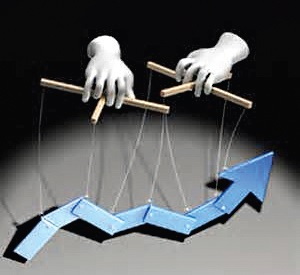
When Senator Bernie Sanders termed US economy as ‘rigged’, he alluded to the fault-lines of capitalist structures skewed in favour of the powerful, like the unscrupulous practices of Lehman Bros and Goldman Sachs that brought upon the worst financial crisis since the Great Depression. Manipulated economies, opaque campaign finance, and delayed criminal justice systems are all about ‘1 per cent of the super rich vs 99 per cent of the rest’. As democracies the world over get rigged by billionaires who buy out campaigns and elections, it gives rise to plutocracies.
Political scientist Colin Crouch coined the term, ‘Post-Democracy’, wherein his writings echoed thoughts about democracies which hold elections, have freedom of speech, and yet are run by the elite that abuse institutions. Finest structures of liberty and equality of free nations at their ‘peak’ of democracy begin to skid into a ‘trough’ in the post-democratic phase when the political class obsesesses over the cause of the wealthy in preference to the welfare of the ordinary.Do we really believe the collateral damage done by bankers that rigged the US economy in 2008 is repaired? Clearly, the system remains broken as Central bankers strive to fix leverage, remaining at riskiest levels ever, and as Hillary Clinton jibes at opponent Trump of the likelihood of “running the US economy like one of his luxury casinos”.
A grim prediction by Finance Minister Arun Jaitley, “I don’t see growth returning to the world”, is also a harsh reality, as India faces a jobless recovery with slowing CAPEX cycles.
What then fuels populist ire in India and America? Its middle-class anger with the manipulated system, as oligarchs dictate policies, annexing larger deals in usurping State-owned assets that yield super profits, as was seen by the end of UPA ll. Democracy in India is largely funded through proceeds of corruption and anonymous electoral payouts in exchange for patronage. All this necessitates institutional infirmities have checks and balances by CAG, CVC, courts and media, which elitists loathe to be accountable to, preferring to reign in vigilanties into ‘caged parrots’ .
A lot is changing, but gradually. Financial regulators SEBI and RBI played a proactive role in insulating the economy from global downturns. The houses of Adani and Ambani, rumoured to have had access to the PM, saw their net wealth erode by 50 per cent to 30 per cent in the last two years, proving it was market forces and not cronyism that determined the fortunes of corporates.
BNP Paribas states 16 per cent of $1,109 billion worth of bank credit taken by Indian companies is at risk of default. When wilful defaulters rig the system, the taxpayer bears the burden of recapitalising banks with high NPAs. Countries that maintain a disproportionate debt-GDP ratio bleed the productive lifeblood out of working classes, as bad private-sector loans get shifted onto government’s balance sheets, leaving the taxpayer to fund ‘gambler-billionaires debts’.
Let us know that no company is ‘Too Big to Fail’, and that ‘every debt is not a scam’ when hit by business cycles. As RBI governor Raghuram Rajan said, NPAs could happen if “someone cancelled your licence, or a company didn’t get approval on time” that led to operating losses.
‘Rigging’ is also at the level of entrepreneurs owning a high market share and who are vested with excessive pricing power to extract royalty through copyrights and patents, making hyper-profits off earlier inventions, like Google and Facebook turning into rent-extracting monopolies. Creative disruption takes time to incubate and displace behemoths. India Inc too builds defensive walls by lobbying for protectionist policies that favour cartels, to the detriment of start-ups who have limited working capital, and need incentivisation.
Unfair capitalism detracts from a level-playing field when the 1 per cent work to manipulate the rules that usurp opportunities of the 99 per cent. Economies in stage-managed bonhomies between elected governments and elites leave citizens with toothless power despite their numerical strength to affect change. But then, it’s easier to be diagnostic than prescriptive in a malaise so deep-rooted.
Source:Indian Express

Leave a Reply